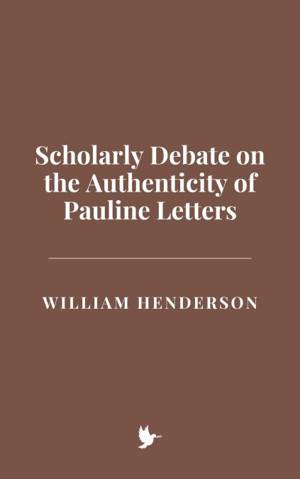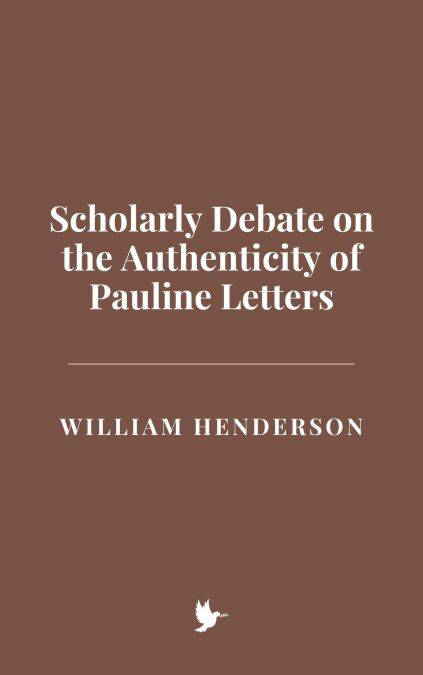
- Afhalen na 1 uur in een winkel met voorraad
- Gratis thuislevering in België vanaf € 30
- Ruim aanbod met 7 miljoen producten
- Afhalen na 1 uur in een winkel met voorraad
- Gratis thuislevering in België vanaf € 30
- Ruim aanbod met 7 miljoen producten
Omschrijving
The Pauline letters are among the most influential texts in Christian history, shaping the theological and ethical framework of the Church for centuries. These letters, attributed to Saint Paul, comprise a significant portion of the New Testament and have been foundational in establishing Christian doctrine. However, the question of their authenticity has sparked scholarly debates for centuries, with various academic and theological perspectives offering differing views on whether the Apostle Paul truly authored all the letters attributed to him.
The importance of the Pauline letters in Christian tradition cannot be overstated. They were written to early Christian communities scattered throughout the Roman Empire and served as both theological instruction and practical guidance. Paul's influence on early Christian thought, particularly on the nature of salvation, grace, the Church, and Christian life, is immeasurable. Yet, despite their centrality to Christian belief, the authenticity of these letters has been questioned by modern scholars, raising crucial issues of authorship, historical context, and the development of early Christian theology.
Historically, the debate surrounding the authenticity of the Pauline letters can be traced back to the rise of critical biblical scholarship in the 18th and 19th centuries. The advent of modern biblical criticism, particularly with the work of scholars such as David Friedrich Strauss and Johann Gottfried Herder, led to a reassessment of the traditional understanding of the authorship of biblical texts. Scholars began to question not only the authorship of the Pauline letters but also the historical accuracy and theological consistency of many of the texts within the New Testament.
Specificaties
Betrokkenen
- Auteur(s):
- Uitgeverij:
Inhoud
- Taal:
- Engels
Eigenschappen
- Productcode (EAN):
- 9798230795728
- Verschijningsdatum:
- 15/03/2025
- Uitvoering:
- E-book
- Formaat:
- ePub

Alleen bij Standaard Boekhandel
Beoordelingen
We publiceren alleen reviews die voldoen aan de voorwaarden voor reviews. Bekijk onze voorwaarden voor reviews.











